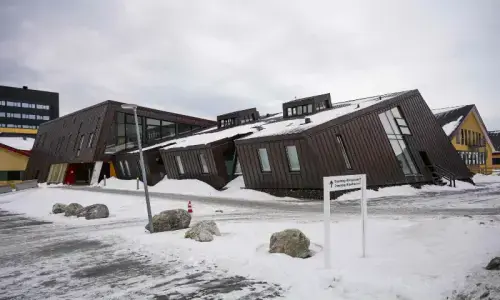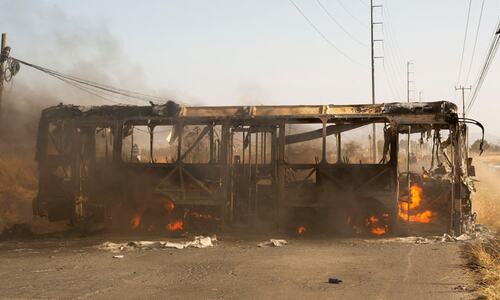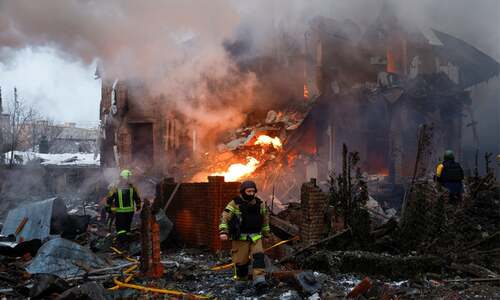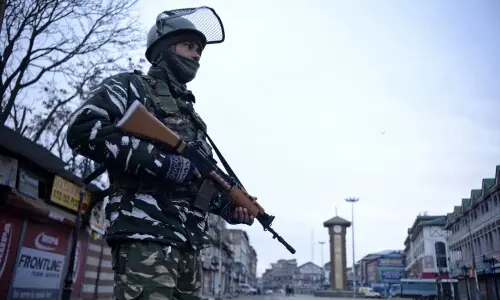
LAHORE: Madam Rakho saunters into the small, sheltered tea stall, where narrow wooden benches serve as both tables and seats. I am already sitting with Neeli Naz and Gogi, both of whom are gurus in their transgender communities. Rakho’s boisterous voice cuts through any solemnity. She greets and joins us.
“My grandfather was the great Ustad Bare Ghulam Ali Khan, whose student Noor Jehan was,” she claims. Neeli interjects, saying that Rakho is famous in one of these Shahi Mohallah bazaars for singing. On cue, Rakho bursts into an unknown song. Clad in a sea-green shalwar kameez with a dupatta on her head and dangling earrings, she looks decidedly feminine.
“I’m not as good as Neeli,” she says though. “She is an excellent choreographer and has taught many young people.” Neeli laughs. “We often fight about who is whose guru, and she maintains that I am hers even though she is so much older than me.”
“I don’t want to whine, but no matter how much talent we have, we can never expect to be hired like a straight person is,” says Neeli. She has been a social worker for 30 years, now associated with an NGO called the South Asia Partnership Pakistan (SAP-PK), which works for marginalised communities, from women in the rural areas to minorities in the urban areas.
“We don’t have CNICs (computerised national identity cards) and we can’t get jobs because no one wants a khusra. We are pushed towards making a living from either begging or prostitution,” explains Neeli. “This is the bitter truth.”
Parties and functions are a prime part of the khwajasirah community: they gather for occasions such as when a guru accepts a group of chelas (followers), and hold music and dance sessions. I am told that the police have made it their job to intrude and spoil such functions for them. Many are arrested, taken to police stations or other locations, raped and robbed. Some are told to rat on others the next time a function is taking place. Obviously, there are many who succumb and save themselves by telling on their community members. Even talking to another man in a private space makes the police accuse them of sitting with their yaar, or lover.
“Only a few days ago our friend was taken to the station by the police,” Neeli tells me. “He was raped throughout the night and they took all his money. What’s he supposed to do? Now, he’s back on the streets.”
We try calling Guddu over so he can tell his tale, but he is getting ready to leave for his nocturnal labours.
Gogi, who has so far mainly kept silent, begins to mime the police. Were it not about rape and torture, his rendition would be humorous. When I tell him he should be on stage, he shakes his head and carries on chewing betel nut.
In just Lahore, there are some 80,000 khwajasirahs. Of these, some 50,000 are involved in begging and prostitution, while the rest are unemployed. It’s an unfortunate situation and the lack of recognition afforded to them by the authorities has not helped.
“Unsafe sex is the result of being ignored,” says Neeli. “I know they try to tell their clients about protection but they are refused. As a result, Aids has spread amongst us.” They begin to count down names on their fingers. “We have tried to tell them so many times to leave this line of work, but they ask, ‘You have any suggestion about how we pay our rent, then?’ And so we are silenced. They sell their bodies for rates as low as Rs50 and suffer abuse at the same time.”
To help them first get their CNICs and then give them vocational training, SAP-PK is setting up institutes.
“In the previous batch of CNICs, Nadra put down our gender as ‘mard [male] khwajahsirah’. But we wanted it to be ‘aurat [female] khwajahsirah’,” explains Neeli.
“If I could get a CNIC in my old age,” suddenly exclaims Madam Rakho, “it would be so easy to travel to Sufi shrines for ziarat, without being stopped and harassed along the way. I often go to Sehwan and to other places beyond Punjab; they stop us at the border.”
“SAP-PK is helping us, but we want more support from government authorities,” insists Neeli. “We need education, skills, and more than anything at this point, we need health camps. Create a department and employ only transgender people who know their own issues best. At least we should be able to have our blood tested for HIV.”
Because of no CNICs, there are also no rights to inheritance. Some are rejected by their fathers and so want the CNICs to carry their guru’s name.
Despite the bubbly exterior that transgender people are so often associated with, inside many are often bitter and hopeless. Around 20 have enrolled in SAP-PK’s educational institutions, but many of the others say that even education cannot save them.
“After all, who wants to hire a khusra,” they say.
Published in Dawn, April 15th, 2016

































